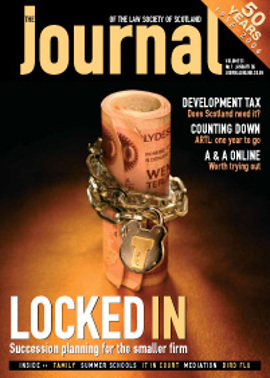Book reviews

This book makes surprisingly easy reading. It builds on a case study, and deals with individual tax aspects in chapters of reasonable length.
The introductory chapter brings to the stage the Filipe family and its asset-owning and business structures, as well as the Spanish villa in which Papa Filipe maintains his former company secretary, a beautiful Spanish lady many years younger than him. Sometimes Papa and family have taken professional tax advice, sometimes they have done their own tax planning. In real life, a client doing his own planning is a sure cause of future professional cost, and in the book it is a sure-footed technique on which to build the Filipe family’s journey through jurisdictions, companies and trusts. It is a complex journey, and the book is kind to the reader in building up the relationship diagrams, of all the various contacts, contracts and entities, gradually and in an intelligible form.
It is not just the technicalities of tax which are covered, but, just as importantly, the legal obligations of tax advisers. The fundamental issue of whether the adviser can lawfully act in the particular circumstances is clearly addressed, as are the complex issues of residence, domicile and citizenship in a world where different jurisdictions have different rules, including – as in the UK – different rules for general law and for tax.
There is a useful chapter on double tax treaties. Having in an earlier chapter explained the importance of tax liability based on source compared to tax liability based on residence, the book explains double tax treaties in that context. There is a useful summary of the OECD model treaty, with helpful comments on how some individual countries have varied the terms to suit their own circumstances. Once again, the issue of residence is covered, including the “tie-breaker” provisions which apply where both country signatories of the treaty would, under their national laws, consider a person resident. It is helpful to be reminded that the model treaty endorses our own legislation in respect of income from heritable property and from businesses established in this country, at least so far as income tax is concerned.
A book of about 300 pages, covering a wide range of tax issues across many countries, inevitably has to compromise in what is included and what is not. There is space to refer to the powers of HMRC to obtain information from agents, but no space to explain when HMRC can be resisted, nor when the surviving legal professional privilege can be invoked.
The chapter on trusts is particularly useful in reminding us not only of the uses and benefits of trusts, but also of the different approaches in different countries and different types of jurisdiction. It can still come as a surprise to some practitioners in one of the jurisdictions of the United Kingdom to discover that some foreign jurisdictions have been reluctant to recognise trusts, and to realise that the limitations of the 1985 Hague Convention on Trusts still leave doubt about the introduction of familiar types of trust into civil law systems: the book provides comfort in its analysis of individual states’ current approach to trusts. When it comes to alternatives, the book is up-to-date to the point of including reference to the SIPP changes from 6 April 2006.
Potential readers should not be put off by the title, and assume it is of interest only to those whose clients are already active internationally, because there is a particularly useful chapter for advisers of home-based clients addressing the question of whether domestic tax can be mitigated by offshore structures. It is this chapter which provides a valuable summary of residence, domicile and citizenship. Not even a Scotsman can complain that the book doesn’t refer to the possibility of different rules for the domicile of Scots children when Holyrood’s [then] current Family Law Bill becomes law!
This is a valuable book for those who advise the increasing numbers of individuals and families who, temporarily or permanently, migrate across national borders, and for those who advise people who hope to mitigate their UK tax liabilities by the use of offshore structures. To make a book on this subject so readable is no mean achievement.
Bill Pagan,
Pagan Osborne
In this issue
- Pressing ahead
- Regulation, 2006 style
- Held to ransom?
- A world turned upside down
- Quiet revolutions
- For supplement read tax
- Why mediation is a bad idea, and other myths
- Advice in a Europe of many notions
- At the touch of a button
- What sort of courts do we want? (And when?)
- KM in practice
- If the bug bites
- Refreshing risk quiz
- The partnership must go on
- First duty to the court
- A difficult birth
- Nuclear power no thanks?
- Due diligence
- Will less mean better?
- Scottish Solicitors' Discipline Tribunal
- Website reviews
- Book reviews
- Back to the future
- Users' IT requirements for ARTL






